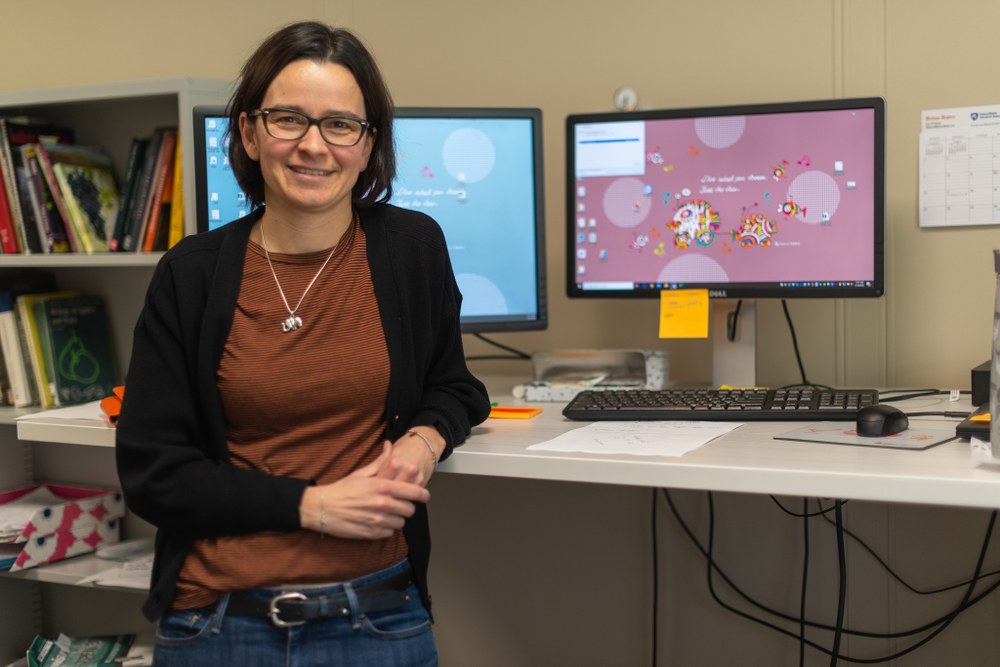Posted: February 8, 2021
Michela Centinari approaches her research with the end goal of improving the quality and production of wine grapes in Pennsylvania.

Dr. Michela Centinari
Dr. Michela Centinari is an Associate Professor of Viticulture in the Penn State Department of Plant Science. She obtained her B.S. in Horticulture and her Ph.D. in Viticulture from the University of Bologna, and later was a post-doctoral scholar at Cornell.
Dr. Centinari's position at Penn State is 50% research and 50% extension. Her research focuses on the management of wine grapes with an end goal of improving their quality and production in Pennsylvania.
Her research projects involve working with local wine grape growers in Pennsylvania. Due to the cold and humid climate here in PA, growing wine grapes is different from growing them in Italy or California. She tries out different experiments on how management practices can improve the sustainability of grape growing but also the aroma and quality of the grapes.
For some of the research projects, her graduate students make wine in collaboration with colleagues in the Penn State Food Science Department and then draw an analysis of the wine. Customers then sample the final product to evaluate whether management practices in the vineyard improved the quality of the wine. Dr. Centinari notes that it is always interesting to see how what you do in the field is going to change the final wine product.
An emerging and new challenge she faces is understanding and learning about how an invasive pest, Spotted Lanternfly, is affecting grapevine health and productivity as they have become a big problem in Southeast Pennsylvania. They started appearing approximately 3 to 4 years ago and have become a problem for wineries in terms of grape production but also are a nuisance to customers who visit for wine tastings.
One of the best parts about Dr. Centinari's job is working with graduate students as she enjoys watching them grow and helping them reach their ultimate career goals. She wants them to learn about the complex process — growing grapes, knowing about their physiology, identifying the causes of stress to the grapes, understanding their ecology, and more. “It is a difficult process from the field to making wine, and students must really think about the real-world problems this growing industry faces."
Dr. Centinari's goal is for her students to see the impact they can have on the real world apart from graduate school.
To read more about Dr. Centinari's research and recent publications, visit her lab's page.

